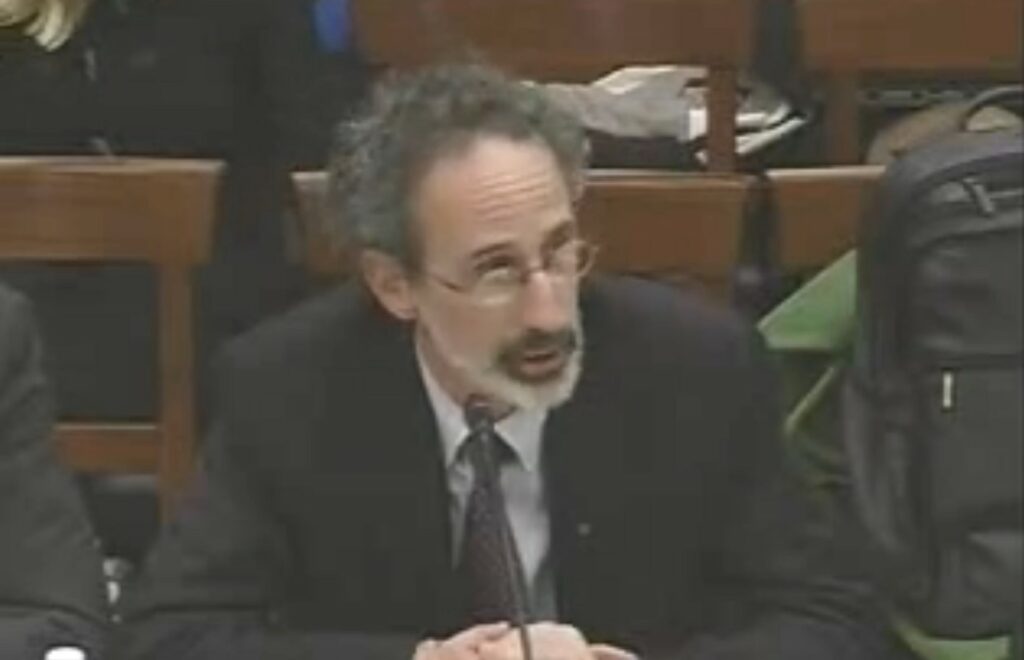Peter Gleick
Key Player
Peter Gleick is the president emeritus and co-founder of the Pacific Institute for Studies in Development, Environment and Security, a California-based think tank focused on environmental issues and water conservation. Gleick is infamous for his role in “Fake Gate” in which he defrauded a nonprofit organization whose research he didn’t agree with.
Gleick received a degree in engineering from Yale and a PhD from the University of California Berkeley. After Berkeley, Gleick helped found the Pacific Institute which specialized in studying California’s water problems. While leading the Pacific Institute, Gleick was also appointed as president of the American Geophysical Union’s Task Force on Scientific Ethics. He also delivered testimony before Congress several times.
Although the Pacific Institute predominantly focused on water conservation, Gleick took on the issues of plastic pollution and climate change as pet projects.
“Fake Gate”
Gleick decided he was going to try to expose the Heartland Institute, an Illinois-based think tank, because he disagreed with some of the group’s research on climate change. To gain access to private information, Gleick impersonated a member of the Heartland Institute’s board of directors with a phishing scam. Under his fake persona, Gleick collected confidential documents from the Heartland Institute which he immediately leaked to the press. The documents contained lists of donors who were previously anonymous and the personal financial information of several Heartland employees.
The Heartland Institute announced that Gleick had obtained the information through his phishing scam. They also accused Gleick of forging one of the documents. Thus began Fake Gate.
Gleick denied forging the document, but several media figures doubted his denial. One piece in the Atlantic said the forged document “reads like it was written from the secret villain lair in a Batman comic. By an intern.” The Chicago Tribune’s editorial board agreed, adding:
“When scientific truth becomes sufficiently compelling, it matters little what the critics or skeptics say. It doesn’t matter if everyone doesn’t believe. Doubters cannot make the Earth flat. But stunts such as Gleick’s — this effort to sully opponents with dishonest tactics — undercuts scientists around the world as they marshal evidence to convince an increasingly skeptical public about the dangers of global warming.”
Forensic experts hired by Heartland also concluded that the document was forged. The forensic review concluded that the document was scanned by an Epson device — which heartland did not own — and the document was created the day before it was leaked.
Eventually, Gleick conceded that he did impersonate the board member. He issued an apology, writing:
“In a serious lapse of my own professional judgment and ethics, I solicited and received additional materials directly from the Heartland Institute under someone else’s name. […] My judgment was blinded by my frustration with the ongoing efforts — often anonymous, well-funded, and coordinated — to attack climate science and scientists and prevent this debate, and by the lack of transparency of the organizations involved. Nevertheless, I deeply regret my own actions in this case. I offer my personal apologies to all those affected.”
————————————————
————————————————
Gleick was booted from his position as the president of the American Geophysical Union’s Task Force on Scientific Ethics. The Pacific Institute also said it was “deeply concerned” by Gleick’s admission and announced that he was suspended from his role as president. Four months later, the Pacific Institute reinstated Gleick. The institute claimed it conducted an internal investigation into Gleick’s actions, but it never released the report.
According to a report by Jones Day, a global law firm, Gleick may have committed several crimes while obtaining the documents, including wire fraud and aggravated identity theft. The Heartland Institute tried to press charges against Gleick, but the Obama-appointed U.S. Attorney Gary Shapiro refused to prosecute the case. Heartland claimed that Gleick created more than $5.6 million in reputational damages by leaking the information and allegedly forging the memo. Heartland also lost several major donors after the leak, including support from General Motors.
Despite Gleick’s unethical behavior, environmental activists have welcomed him back with open arms. He authored the book Bottled and Sold: The Story Behind Our Obsession with Bottled Water, in which he says plastic bottles should be banned. Gleick also appeared as a guest in a Netflix documentary against plastic.
Gleick’s obsession with bottled water even caused him to apoplectically criticize National Geographic for having bottled water, writing on Twitter that it was “Like Joe Camel pushing cigarettes to kids.”
Although Gleick doesn’t want everyone else to have bottled water, he admitted on Twitter that he stores water in plastic bottles in case of emergencies. At least his family will be okay, even if he advocates for policies that might leave everyone else’s family without a safe supply of water in a disaster.




